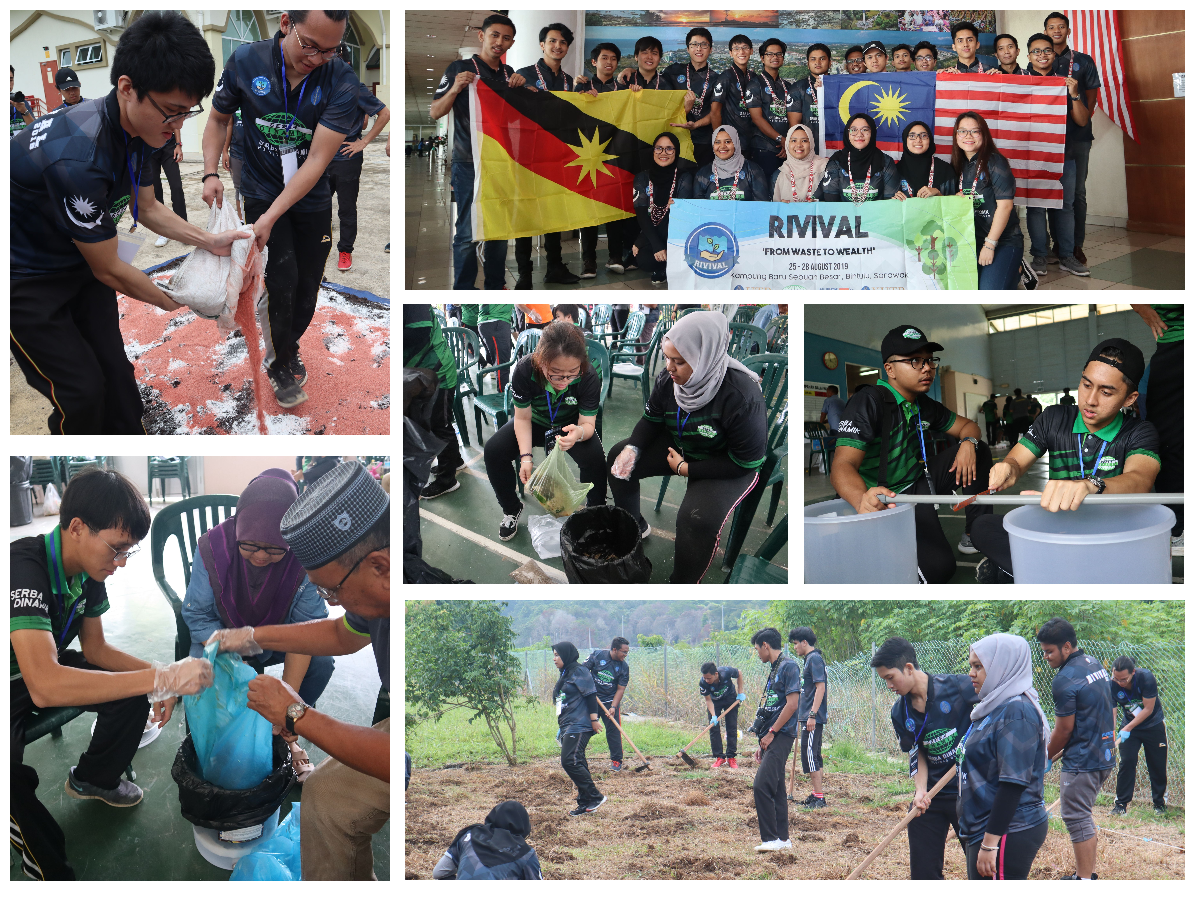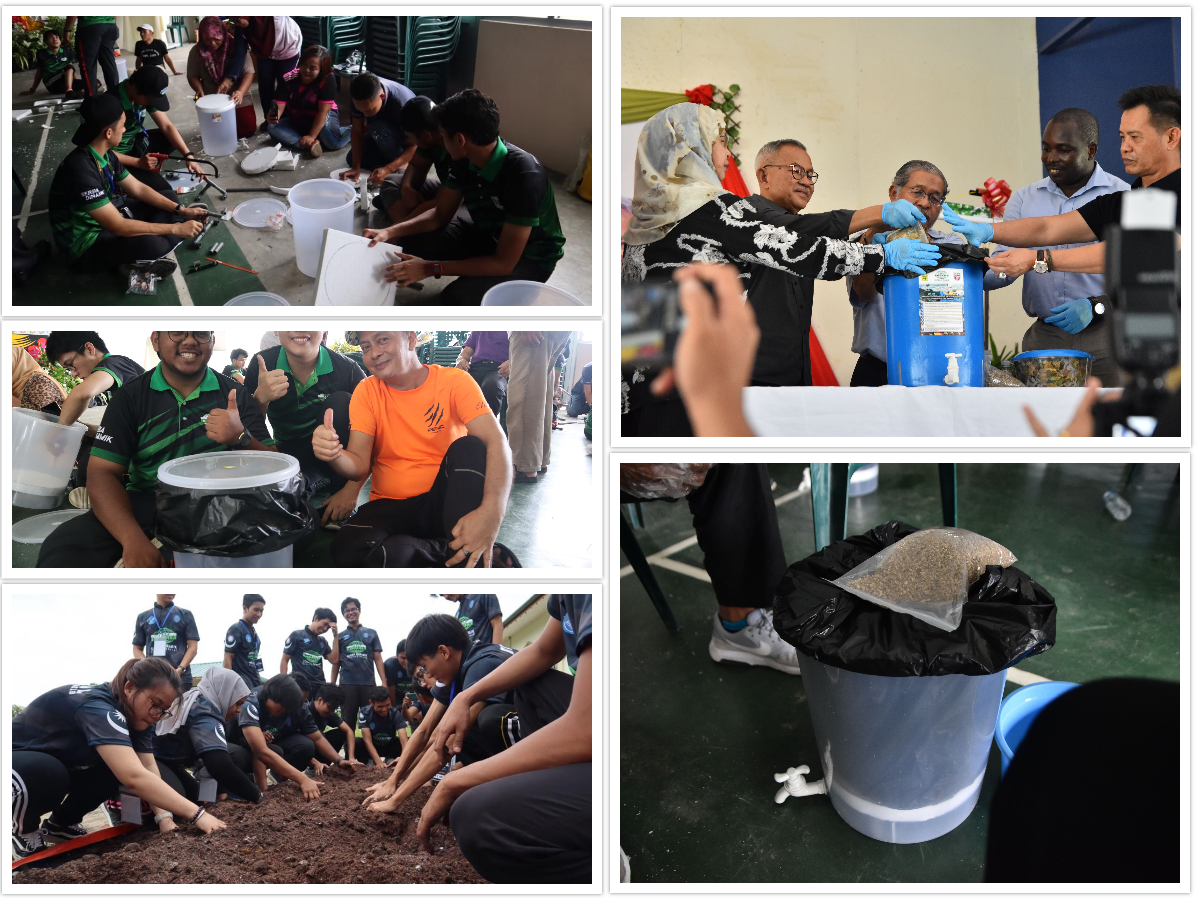Team Rivival Introduces Locals to an Attractive Option for Recycling Waste
A little goes a long way. This is especially true when so much of today's waste is polluting our rivers and natural ecosystems. When so much life depends on water, we face only one choice: to clean up the mess we make. When one gives back to nature, it will support prosperous communities.

In a sense, for a common cause, this was exactly what team Rivival had intended. Last August, team Rivival journeyed down to Kg. Jepak in Bintulu, Sarawak. It's a collaboration with an engineering company, Serba Dinamik holdings Berhad for a bokashi composting project.
The project was led by project manager, Syarafana Senu, 21, a mechanical engineering student from Kuching, In short, bokashi composting is a process by which organic materials, including dairy and meat scraps, are quickly fermented in an air-free environment.
Unlike conventional composting, traditional composting typically consists of putting waste into a pile located outside, and uses an aerobic process to break down the waste. “This usually takes a long time before the compost can be used," says Syarafana. According to her, the piles are often left untouched and can take seasons to break down.
Increasingly, techniques like bokashi composting is an attractive option for recycling waste. Syarafana highlights, “They have a lot of fish scrap. We don't want them to discard the waste. By teaching locals a simple composting method like this, we could reduce waste by several tons per year."
Yet for all the catch, fish scraps left unsold can easily end up in marine environment. According to Syarafana, apart from polluting the river, dumping fish scraps into a river is also putting other fishes at risk.
It was a desire to empower rural folks with practical knowledge of green technology that brought the team to Kg. Jepak. Syarafana explains, “Composting isn't as hard as many believe. Anyone can compost at any location, as long as they understand the basics of this all-natural process. We wanted the villagers to learn how composting works and why it's beneficial to the environment."

The compost can be used and sold as an end product to fertilise soil," she adds, referencing how disposing waste without harming the environment could also help supplement the villagers' income.
On the 25th of August, Syarafana and her team were welcomed by their foster families. To ensure the project builds lasting ties, Syarafana says, “We felt truly honoured as 14 families extended the warmth of their home to host our team members."
Syarafana says, “This is a part of our USR effort. As engineering students, we wanted to impart the knowledge we learn at the university in ways that can improve people's lives."
Indeed, this is another prime example of UTP's profound career connected learning and industry collaboration. From the work we do, we foster long-term relationships with our global social-impact partners to prepare our students, people and researchers as global citizens.
As a leading university in engineering, science and technology, our graduates are driven to exceed their professional objectives and contribute towards overcoming capability deficit across all sectors and industries.
*This project is under HEB1012 Community Engagement Project (MPU4) which is a compulsory course offered to all UTP students as part of the national requirement subject prescribed by the Ministry of Education Malaysia.
Published on 15 July 2020

